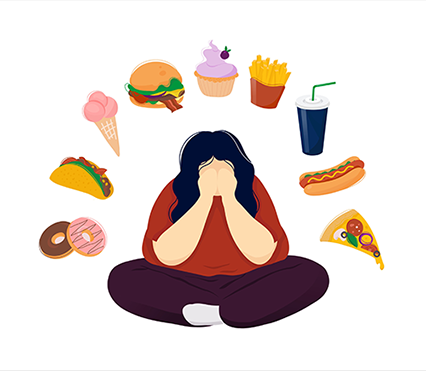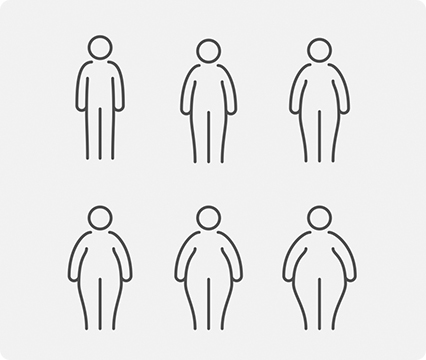Pathways linking BMI trajectories and mental health in an adult population-based cohort: Role of emotional eating and body dissatisfaction
Role of emotional eating and body dissatisfaction
There is a known two-way relationship between being overweight or obese and experiencing poor mental health. However, limited research has explored how changes in body weight over time relate to mental health. This study by Schrempft et al. (2025) investigates how weight gain affects mental health, emphasizing the roles of emotional eating and dissatisfaction with body image as possible mediating factors. Participants in the Specchio cohort in Geneva, Switzerland, self-reported their height and weight at registration and again during the spring of 2022, 2023, and 2024. Researchers evaluated BMI trends using two approaches: the Individual’s rate of BMI change per year and the likelihood of progressing to a higher BMI category over time. The study also examined how behavioral and psychological factors influenced changes in BMI and how these changes affected mental health. In a group of 7,388 adults (59% women, average age 51), factors linked to increased BMI over four years included financial stress, inadequate sleep, low physical activity, more screen time for leisure, emotional eating, and symptoms of anxiety and depression. Weight gain was significantly associated with greater body dissatisfaction and a reduced quality of life at the end of the study period, even after accounting for baseline mental health status. Emotional eating partially explained the link between mental health symptoms or financial hardship and BMI increase. Similarly, body dissatisfaction and poor self-rated health partially explained the connection between BMI increases and lower quality of life. This study highlights the significant role of emotional eating and dissatisfaction with body image in the link between weight gain and mental health. These factors should be considered when developing interventions to manage weight and promote psychological well-being. [NPID: Emotional eating, body dissatisfaction, BMI trajectory, mental health, quality of life, anxiety, depression, weight gain, lifestyle factors]
Year: 2025
 Navigation
Navigation








